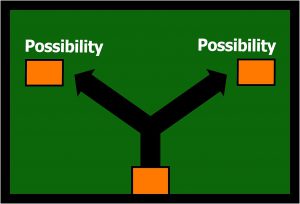
Explore COBRA Coverage
The Consolidated Omnibus Budget Reconciliation Act (COBRA) is a federal law that permits eligible workers to keep their employer-sponsored health insurance coverage for a set length of time when they lose their jobs. While COBRA coverage may be more expensive than what you paid when employed, it frequently provides access to the same benefits and network of healthcare providers. Within 60 days after losing your employment, contact your former employer’s human resources department and inquire about COBRA coverage. To be eligible for COBRA coverage, you must have been covered by your employer’s health plan while employed, and your employer must have at least 20 employees. COBRA coverage is also offered for eligible dependents (spouse and children) in the event of job loss, divorce, or other qualifying situations.
COBRA coverage normally lasts from 18 to 36 months, depending on the conditions. The term can vary depending on criteria such as the reason for job loss and any extensions granted due to disability. While COBRA allows you to keep the same health insurance coverage you had while employed, it can be more expensive. Under COBRA, you are responsible for paying the entire premium, including the portion that your employer previously paid. This can lead to much higher monthly rates. However, it may still be less expensive than other options, particularly if you want to keep your current healthcare providers or have certain medical needs.
After you lose your employment, your employer must present you with a COBRA election notice within 44 days. This letter includes information regarding your eligibility, coverage costs, and enrollment deadlines. You normally have 60 days from the date of the notice to determine whether to elect COBRA coverage. If you decide to join, you must pay the initial payment within 45 days.
Medicaid
Medicaid is a joint federal and state program designed to provide healthcare coverage to low-income individuals and families. Eligibility and benefits vary from state to state, but it often serves as a vital safety net for individuals who are unemployed and have limited financial resources. Here’s a more in-depth look at Medicaid and how to access it when you’re unemployed:
Income Eligibility
Medicaid eligibility is primarily based on income, household size, and other factors. In states that have expanded Medicaid under the Affordable Care Act (ACA), eligibility limits have been increased, allowing more low-income adults to qualify. However, even in non-expansion states, you may still be eligible if your income falls below the poverty level or if you meet specific criteria such as having dependent children or being pregnant.
Application Process
Applying for Medicaid typically involves contacting your state’s Medicaid office or using an online portal provided by your state’s government. The application process may require you to provide documentation of your income, assets, and other personal information. Many states also offer assistance through local social service agencies to help individuals with the application process.
Retroactive Coverage
In some cases, Medicaid coverage can be retroactive to cover medical expenses incurred up to three months before the month of your application, depending on state regulations. This can be particularly helpful if you had medical expenses before obtaining Medicaid coverage.
Benefits
Medicaid provides comprehensive healthcare coverage, including doctor’s visits, hospital stays, prescription medications, preventive care, and other essential medical services. Coverage may also include dental, vision, and mental health services, depending on your state’s Medicaid program.
Managed Care
In many states, Medicaid recipients receive their benefits through managed care organizations (MCOs). These organizations coordinate your healthcare services and provide access to a network of healthcare providers. You may be required to choose an MCO or be assigned one based on your location.
No Monthly Premiums or Low Cost
Unlike private health insurance plans, Medicaid typically does not require monthly premiums. In some cases, Medicaid recipients may be subject to nominal co-payments for certain services, but these costs are generally low, and there are often exemptions for those with limited income.
Renewal and Redetermination
Medicaid eligibility is not always permanent. You will need to periodically reapply or recertify your eligibility, typically on an annual basis. Changes in your income or household circumstances may impact your eligibility, so it’s essential to stay informed and report any changes promptly.
Additional Services
Some states offer optional Medicaid programs that provide additional services, such as home and community-based services for individuals with disabilities or long-term care needs. These programs can be particularly beneficial for those who require specialized care.
Health Insurance Marketplace
The Health Insurance Marketplace, often known as the Affordable Care Act (ACA) Exchange, is a website where individuals and families may compare and purchase health insurance plans. It is a great resource for those who are unemployed or experiencing financial difficulties, since it provides a variety of solutions designed to give reasonable and comprehensive coverage. The Health Insurance Marketplace includes an annual Open Enrollment Period, during which you can apply for or alter your coverage. Typically, this time lasts from November 1st to December 15th, though particular dates may vary from year to year. It is critical to record these dates on your calendar and take advantage of this opportunity to obtain health insurance.
In addition to the Open Enrollment Period, Special Enrollment Periods (SEPs) are triggered by certain life events, such as job loss, marriage, childbirth, or other qualifying events. If you lose your employment and employer-sponsored coverage, you have 60 days to apply for coverage through a SEP. One of the most major benefits of the Health Insurance Marketplace is the availability of subsidies. The government provides subsidies to help lower-income individuals and families afford health insurance premiums. Subsidies are classified into two types: premium tax credits and cost-sharing reductions. These subsidies can drastically lower your monthly premiums and out-of-pocket expenses, making insurance more reasonable.
All Marketplace plans must provide basic health benefits like preventative care, prescription medications, maternity care, mental health services, and more. This ensures that you have adequate coverage for all necessary medical procedures. The Marketplace website offers tools and resources for comparing various health insurance plans based on characteristics such as premiums, deductibles, co-payments, and provider networks. You can refine your search to locate plans that match your healthcare choices.
State-Specific Programs
In addition to Medicaid and the Health Insurance Marketplace, many states provide their own health insurance programs for low-income or unemployed individuals and families. These programs differ greatly per state, both in terms of eligibility requirements and services offered. These programs have various names in different states, such as “Basic Health Program,” “State Children’s Health Insurance Program (SCHIP),” or “State-specific Health Coverage Program.” Each state has the freedom to create its own program to meet the specific healthcare needs of its citizens.
Eligibility for state-specific programs is typically based on income, and the requirements vary by state. Some programs cater to certain demographics, such as children, pregnant mothers, or people with impairments, while others accept a larger variety of applicants. Job loss and unemployment are common variables that improve your chances of qualifying. State-specific programs offer a variety of healthcare services, including doctor visits, hospitalization, preventive care, prescription drugs, and more. Some states may additionally provide extra benefits like dental and vision care, mental health services, and substance addiction treatment.
To apply for these programs, contact your state’s Department of Health or the organization in charge of managing healthcare programs. Online applications are frequently accessible, making it easy to apply from the convenience of your own home. You may be required to supply evidence proving your income, citizenship or residency status, and other relevant information. Some state-specific schemes may have minimal or no monthly premiums, while others may impose small fees or co-payments for specified services. The cost-sharing arrangement varies, but the overall purpose is to make healthcare cheap for individuals with limited resources.
Spouse or Family Coverage
One potential option for obtaining health insurance when you’re unemployed is to explore coverage through a spouse or family member’s employer-sponsored plan. This approach allows you to become a dependent on their policy, granting you access to healthcare benefits. The availability of spouse or family coverage largely depends on the policies of your spouse or family member’s employer. In most cases, employers offer the option for employees to include their spouses and dependent children on their health insurance plans. Some employers extend this benefit to domestic partners as well.
In addition to the regular open enrollment period, many employer-sponsored plans offer special enrollment periods (SEPs) triggered by qualifying life events. These events can include marriage, the birth or adoption of a child, or a spouse’s job loss. If you’ve recently lost your job, you may be eligible to enroll in your spouse’s plan during a SEP. Enrolling in a spouse or family member’s plan typically involves sharing the cost of premiums. The employer and the covered employee typically contribute a portion of the premium cost, while the dependent (you, in this case) is responsible for any additional premiums. It’s essential to understand the financial implications and budget accordingly.
The specific benefits and coverage options offered by the employer’s plan may vary. Review the plan’s coverage details carefully to ensure that it meets your healthcare needs. Consider factors such as the network of healthcare providers, prescription drug coverage, and any deductibles or copayments associated with the plan.
Short-Term Health Insurance
Short-term health insurance plans, sometimes known as temporary health insurance, are intended to provide coverage for a limited time, usually ranging from a few months to a year. They can be a solution for people who are unemployed or in between jobs but require some type of coverage. Short-term health insurance plans are temporary in nature, and their lifespan varies depending on the insurer and state restrictions. While they can give coverage for up to a year in specific situations, the majority of states limit it to three to six months. Be warned that these plans often do not provide as much coverage as long-term health insurance options.
Short-term plans are designed to provide basic, essential coverage and are typically less extensive than standard health insurance. They may exclude pre-existing conditions, maternity care, mental health services, preventive care, and prescription medications. Before enrolling, make sure to carefully review the plan’s advantages and limitations. Short-term plans do not meet the Affordable Care Act’s (ACA) minimum essential coverage criteria. This means that even if you just have a short-term plan, you may be subject to the ACA’s individual mandate penalty (if applicable in your state) for not obtaining complete health insurance.
State Regulations For Short Term Plans
Each state has its own set of rules governing short-term plans. In reality, some jurisdictions prohibit residents from purchasing these plans, although the majority allow for a limited time to have one. The following states enable you to get short-term coverage for 364 days and can renew up to three times for a total of three years:
- Alabama
- Alaska
- Arizona
- Arkansas
- Florida
- Georgia
- Idaho
- Indiana
- Iowa
- Kentucky
- Louisiana
- Mississippi
- Montana
- Nebraska
- North Carolina
- North Dakota
- Oklahoma
- Pennsylvania
- Rhode Island
- South Dakota
- Tennessee
- Texas
- Utah
- West Virginia
- Wyoming
The next set of states allow for coverage from short term plans to last between 1 and 3 years:
- Kansas – 365 days for your initial plan and 1 renewal, giving you a total of 24 months.
- Maine – 364 days for the initial plan, with 1 renewal for a total of 24 months.
- Ohio – 364 days, no renewals.
- South Carolina – 11 months for the initial plan, plus allows 3 renewals for 33 months in total.
- Wisconsin – 364 days, allows for renewal but only for a maximum of 18 months of coverage.
If you live in the following states, your initial term with one of these plans can be be up to 6 months:
- Connecticut
- Illinois
- Michigan – 185 days (just over 6 months).
- Minnesota – 185 days.
- Missouri – allows for renewals for a total of 36 months of coverage.
- Nevada – 185 days.
- New Hampshire
The next states have an initial term of 3 months:
- Delaware
- Maryland
- Oregon
- Vermont
- Virginia – allows for 1 renewal for up to 6 months of coverage.
- Washington
The last set of states have either banned or no longer offer short term plans due to a change in their laws:
For more in-depth information on your state’s laws surrounding short term insurance, check out our state-by-state guides to health insurance.
Non-Profit and Community Resources
In addition to government programs and traditional health insurance options, there are non-profit organizations and community resources that offer assistance to individuals who are unemployed or facing financial hardship. These resources can provide valuable support in accessing healthcare coverage and essential medical services.
Community Health Centers
Community health centers, also known as Federally Qualified Health Centers (FQHCs), serve as primary healthcare providers for underserved populations. They offer a wide range of healthcare services, including medical, dental, and behavioral health services, often on a sliding fee scale based on income. These centers are essential for individuals without insurance or with limited resources.
Free Clinics
Many communities have free or low-cost clinics staffed by volunteer healthcare professionals. These clinics provide basic medical care, preventive services, and sometimes prescription medications at little to no cost. They are a valuable resource for individuals who may not have insurance coverage.
Non-Profit Health Organizations
Various non-profit organizations, such as the American Cancer Society, American Heart Association, and American Diabetes Association, may offer financial assistance programs or resources to help individuals access necessary medical care. These programs may focus on specific health conditions and offer support for related expenses.
Prescription Assistance Programs
Some non-profit organizations and pharmaceutical companies offer prescription assistance programs for individuals who cannot afford their medications. These programs provide discounts or free medications to eligible individuals based on income and other criteria.
Navigators and Enrollment Assistance
Non-profit organizations and community groups often have trained navigators or certified application counselors who can assist individuals in navigating the health insurance enrollment process. They can help you understand your options, complete applications for government programs like Medicaid or the Health Insurance Marketplace, and provide guidance on available resources.
Local Social Services Agencies
Local government social services agencies can connect individuals with a range of resources, including healthcare coverage options, food assistance, housing support, and more. They can assess your eligibility for programs like Medicaid and provide guidance on accessing community resources.
Disease-Specific Support Organizations
If you have a specific medical condition or are dealing with a chronic illness, consider reaching out to disease-specific support organizations. These organizations often provide educational resources, financial assistance, and support networks to individuals and their families.
Charitable Foundations
Some charitable foundations and philanthropic organizations provide grants or financial assistance to individuals in need of medical care or health insurance coverage. These grants may be available on a case-by-case basis and can help cover medical expenses or insurance premiums.
Local Churches and Religious Organizations
Religious institutions and local churches may offer support programs, including healthcare assistance, to members of their community. Reach out to local congregations or organizations to inquire about available resources.
Conclusion
Losing a job can be a challenging time, but it’s essential not to overlook the importance of maintaining access to healthcare. By exploring the various options available, such as COBRA coverage, Medicaid, the Health Insurance Marketplace, and state-specific programs, you can find a solution that suits your needs and budget. Don’t hesitate to seek guidance from healthcare professionals or social service organizations to help you navigate the process and secure the health insurance coverage you need during this transitional period. There is a way to get affordable health insurance without all the hassle. A licensed EZ insurance agent can outline the benefits and drawbacks of each plan. And assist you in creating the plan that will work best for you.
Working with an agent saves you time and stress, no more trying to decode legal jargon or reading fine print. Agents do all the heavy lifting while you rest easy knowing that your coverage will be the best fit for your financial and medical needs. Not to mention EZ agents can save you hundreds of dollars every year on health insurance premiums.
We do this by having the ability to search both on and off market for the most affordable plans. We’re also able to find and apply any discounts you may qualify for. And we don’t stop at just finding you a plan, we help maintain your plan after the fact too! We can help you file claims with your provider and even help renew your policy when the time comes. To get started, simply put your zip code into the box below or give one of our licensed agents a call at 877-670-3557.


 Missing The AEP With a Part D Plan
Missing The AEP With a Part D Plan In the event that you don’t qualify for any SEPs or any other special enrollment choices, you will have to wait until the subsequent open enrollment period in order to make any modifications to your Medicare coverage. Both the AEP and the IEP are considered to be the most important enrollment periods. You have the ability to make modifications to your current Medicare plan. Or enroll in a new plan for the following calendar year during these enrollment periods. It is essential to be aware of these enrollment times. And to make appropriate preparations in order to guarantee that you will have the necessary coverage.
In the event that you don’t qualify for any SEPs or any other special enrollment choices, you will have to wait until the subsequent open enrollment period in order to make any modifications to your Medicare coverage. Both the AEP and the IEP are considered to be the most important enrollment periods. You have the ability to make modifications to your current Medicare plan. Or enroll in a new plan for the following calendar year during these enrollment periods. It is essential to be aware of these enrollment times. And to make appropriate preparations in order to guarantee that you will have the necessary coverage.








